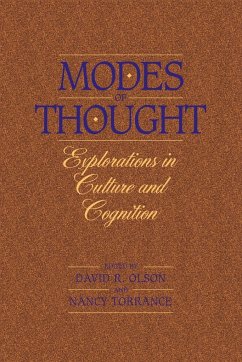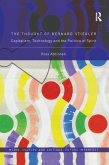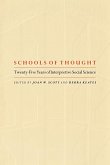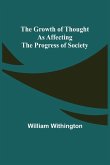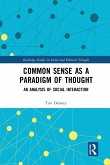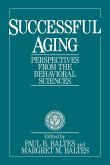Modes of Thought
Explorations in Culture and Cognition
Herausgeber: Olson, David R.; Torrance, Nancy
Modes of Thought
Explorations in Culture and Cognition
Herausgeber: Olson, David R.; Torrance, Nancy
- Broschiertes Buch
- Merkliste
- Auf die Merkliste
- Bewerten Bewerten
- Teilen
- Produkt teilen
- Produkterinnerung
- Produkterinnerung
Thirteen leading scholars examine the issues of universality and diversity in human thought.
Andere Kunden interessierten sich auch für
![Recent Developments in European Thought Recent Developments in European Thought]() VariousRecent Developments in European Thought25,99 €
VariousRecent Developments in European Thought25,99 €![The Thought of Bernard Stiegler The Thought of Bernard Stiegler]() Ross AbbinnettThe Thought of Bernard Stiegler65,99 €
Ross AbbinnettThe Thought of Bernard Stiegler65,99 €![Schools of Thought Schools of Thought]() Joan W. Scott / Debra Keates (eds.)Schools of Thought53,99 €
Joan W. Scott / Debra Keates (eds.)Schools of Thought53,99 €![Transference of Thought Transference of Thought]() Edmund ShaftesburyTransference of Thought26,99 €
Edmund ShaftesburyTransference of Thought26,99 €![The Growth of Thought as Affecting the Progress of Society The Growth of Thought as Affecting the Progress of Society]() William WithingtonThe Growth of Thought as Affecting the Progress of Society17,99 €
William WithingtonThe Growth of Thought as Affecting the Progress of Society17,99 €![Common Sense as a Paradigm of Thought Common Sense as a Paradigm of Thought]() Tim DelaneyCommon Sense as a Paradigm of Thought64,99 €
Tim DelaneyCommon Sense as a Paradigm of Thought64,99 €![Successful Aging Successful Aging]() B. Baltes / Margret Baltes (eds.)Successful Aging70,99 €
B. Baltes / Margret Baltes (eds.)Successful Aging70,99 €-
-
-
Thirteen leading scholars examine the issues of universality and diversity in human thought.
Hinweis: Dieser Artikel kann nur an eine deutsche Lieferadresse ausgeliefert werden.
Hinweis: Dieser Artikel kann nur an eine deutsche Lieferadresse ausgeliefert werden.
Produktdetails
- Produktdetails
- Verlag: Cambridge University Press
- Seitenzahl: 320
- Erscheinungstermin: 31. Dezember 2008
- Englisch
- Abmessung: 234mm x 156mm x 17mm
- Gewicht: 488g
- ISBN-13: 9780521566445
- ISBN-10: 0521566444
- Artikelnr.: 22134817
- Herstellerkennzeichnung
- Libri GmbH
- Europaallee 1
- 36244 Bad Hersfeld
- gpsr@libri.de
- Verlag: Cambridge University Press
- Seitenzahl: 320
- Erscheinungstermin: 31. Dezember 2008
- Englisch
- Abmessung: 234mm x 156mm x 17mm
- Gewicht: 488g
- ISBN-13: 9780521566445
- ISBN-10: 0521566444
- Artikelnr.: 22134817
- Herstellerkennzeichnung
- Libri GmbH
- Europaallee 1
- 36244 Bad Hersfeld
- gpsr@libri.de
1. Introduction David R. Olson; Part I. The History of Thought: 2. Science
in antiquity: the Greek and Chinese cases and their relevance to the
problems of culture and cognition Geoffrey Lloyd; 3. Relations of analogy
and identity Stanley J. Tambiah; 4. Self, narrative and memory: reflections
on Augustine, Petrarch, and Descartes Brian Stock; 5. Normal people Ian
Hacking; 6. Modes of reasoning and the politics of authority in the modern
state Yaron Ezrahi; Part II. The Anthropology of Thought: 7. Frames for
thinking: ways of making meaning Jerome S. Bruner; 8. Autobiography and
fiction as modes of thought Carol F. Feldman and David Kalmar; 9. Inference
in narrative and science Keith Oatley; 10. Literate mentalities: literacy,
consciousness of language and modes of thought David R. Olson; 11.
Mythology and analogy Cameron Shelley and Paul Thagard; Part III. The
Development and Education of Thought: 12. Cognitive domains as modes of
thought Susan Carey; 13. Modes of thinking about living kinds: science,
symbolism, and common sense Scott Atran; 14. Is good thinking scientific
thinking? Deanna Kuhn; 15. Network, the verb, and the appeal of
collaborative modes of instruction and thought Myron Tuman.
in antiquity: the Greek and Chinese cases and their relevance to the
problems of culture and cognition Geoffrey Lloyd; 3. Relations of analogy
and identity Stanley J. Tambiah; 4. Self, narrative and memory: reflections
on Augustine, Petrarch, and Descartes Brian Stock; 5. Normal people Ian
Hacking; 6. Modes of reasoning and the politics of authority in the modern
state Yaron Ezrahi; Part II. The Anthropology of Thought: 7. Frames for
thinking: ways of making meaning Jerome S. Bruner; 8. Autobiography and
fiction as modes of thought Carol F. Feldman and David Kalmar; 9. Inference
in narrative and science Keith Oatley; 10. Literate mentalities: literacy,
consciousness of language and modes of thought David R. Olson; 11.
Mythology and analogy Cameron Shelley and Paul Thagard; Part III. The
Development and Education of Thought: 12. Cognitive domains as modes of
thought Susan Carey; 13. Modes of thinking about living kinds: science,
symbolism, and common sense Scott Atran; 14. Is good thinking scientific
thinking? Deanna Kuhn; 15. Network, the verb, and the appeal of
collaborative modes of instruction and thought Myron Tuman.
1. Introduction David R. Olson; Part I. The History of Thought: 2. Science
in antiquity: the Greek and Chinese cases and their relevance to the
problems of culture and cognition Geoffrey Lloyd; 3. Relations of analogy
and identity Stanley J. Tambiah; 4. Self, narrative and memory: reflections
on Augustine, Petrarch, and Descartes Brian Stock; 5. Normal people Ian
Hacking; 6. Modes of reasoning and the politics of authority in the modern
state Yaron Ezrahi; Part II. The Anthropology of Thought: 7. Frames for
thinking: ways of making meaning Jerome S. Bruner; 8. Autobiography and
fiction as modes of thought Carol F. Feldman and David Kalmar; 9. Inference
in narrative and science Keith Oatley; 10. Literate mentalities: literacy,
consciousness of language and modes of thought David R. Olson; 11.
Mythology and analogy Cameron Shelley and Paul Thagard; Part III. The
Development and Education of Thought: 12. Cognitive domains as modes of
thought Susan Carey; 13. Modes of thinking about living kinds: science,
symbolism, and common sense Scott Atran; 14. Is good thinking scientific
thinking? Deanna Kuhn; 15. Network, the verb, and the appeal of
collaborative modes of instruction and thought Myron Tuman.
in antiquity: the Greek and Chinese cases and their relevance to the
problems of culture and cognition Geoffrey Lloyd; 3. Relations of analogy
and identity Stanley J. Tambiah; 4. Self, narrative and memory: reflections
on Augustine, Petrarch, and Descartes Brian Stock; 5. Normal people Ian
Hacking; 6. Modes of reasoning and the politics of authority in the modern
state Yaron Ezrahi; Part II. The Anthropology of Thought: 7. Frames for
thinking: ways of making meaning Jerome S. Bruner; 8. Autobiography and
fiction as modes of thought Carol F. Feldman and David Kalmar; 9. Inference
in narrative and science Keith Oatley; 10. Literate mentalities: literacy,
consciousness of language and modes of thought David R. Olson; 11.
Mythology and analogy Cameron Shelley and Paul Thagard; Part III. The
Development and Education of Thought: 12. Cognitive domains as modes of
thought Susan Carey; 13. Modes of thinking about living kinds: science,
symbolism, and common sense Scott Atran; 14. Is good thinking scientific
thinking? Deanna Kuhn; 15. Network, the verb, and the appeal of
collaborative modes of instruction and thought Myron Tuman.

